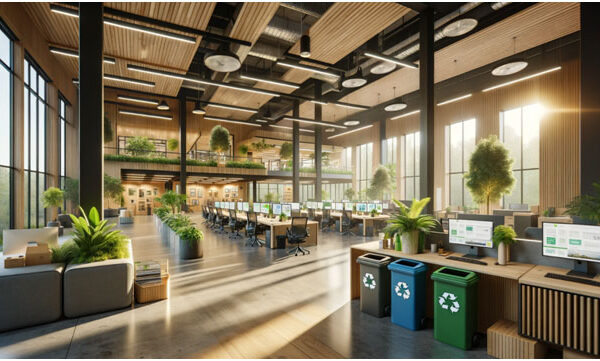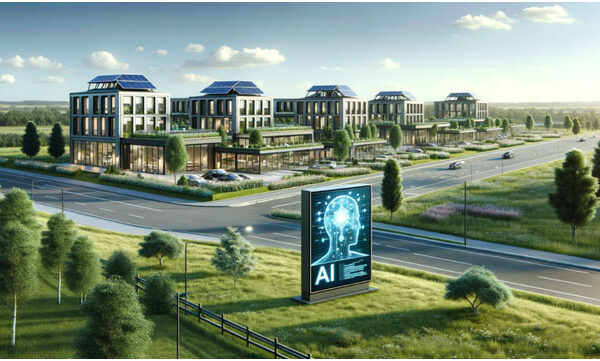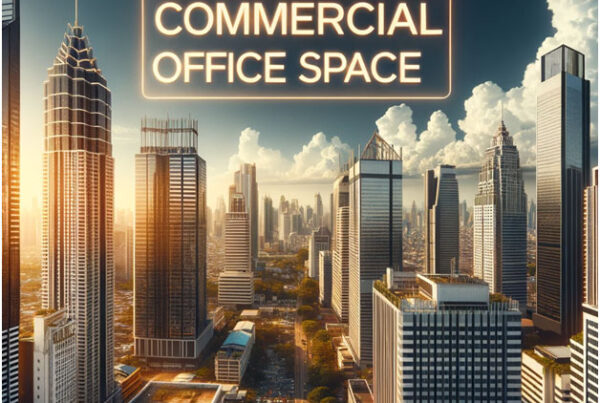
Nowadays, many small businesses start their journey to success from home.
Maybe they start in a spare bedroom or use a room behind the garage. That’s all fine when, there are, let’s say, 2 or 3 people working together, but what happens when your business grows? What happens when you need to start taking on more staff to fulfill orders or to provide the necessary sales or administrative support? What about your files, records and new office equipment, where’s that going to fit in to your current space?
Moving involves several key decisions
Well then, it’s really time to start thinking about moving to a purpose-built office or other type of commercial space. But the big question is: Do I rent or buy commercial property to facilitate my business expansion and future growth plans?
Once you have made the decision (probably in conjunction with your partners or staff) to make a move, there are a myriad of factors which you will need to review to help you with your decision. And these factors may differ slightly if you are making the first move out of home, or have moved premises once (or twice) already.

Questions which have to be asked
The list of questions to be covered is not endless and each small business may have their own reason whether to rent or buy commercial property. In any event, have a think about these questions which we at Greater Alliance Federal Credit Union suggest you ask yourself before you make a decision:
What future growth does your Business Plan call for?
Future business growth is always difficult to predict. If you have a 2-3 year plan to hire “X” more people, maybe add a showroom to your premises, for example, you probably want to lease. This will allow you more flexibility in case you grow faster than anticipated.
Lease terms can be as short as three years, with possibly an option in the lease to further extend if all covenants are complied with. Generally, leases are much easier to adjust.
On the other hand, buying a commercial property and paying a mortgage suggests more of a sense of permanence. If the mortgage offers fixed monthly payments, this may be better for planning long-term. In addition, you can enjoy capital growth if property values increase in the location you buy in—but, as we all know, this is not always the case as extraneous factors can affect value and cause a decline.
But, be careful. The last thing you want to do is buy commercial property, only to find it’s too small in, say, 3 years’ time and have to try to sell on the property.
Do I have enough savings/cash for the required deposits?
If you are leasing or buying you will need money for a deposit. If you plan to rent property you will need money for the security and utility deposits under the terms of your lease—although, of course, you get this back at the end of the lease term.
If you buy you will need rather more money for the down-payment as part of the purchase agreement. Even if you can afford the down-payment, do you want to tie this money up in buying property or would it be better to, at this stage, put it into the growth of your business?
Of course, it’s wise to discuss this issue with your accountantor financial adviser who will help analyse the move from a purely financial perspective.
They can:
- consider any tax implications or benefits from interest, depreciation and non-mortgage expenses;
- analyse the impact of rental or mortgage repayments on your annual operating budget;
- make recommendations about your cash flow and working capital needs
How important is your location?
If you are reliant upon clients finding you at a particular location or depend, to some extent, on retail sales, then the availability of the right property will help determine your decision.
Some prime locations are only ever for rent as Landlords are keen to hold on to their investments. Plus, the cost to buy in a prime spot may be just too high for a fledging business.
On the other hand, if you primarily go to visit your customers or do a lot of work on-line then a second-tier location may work for you. In such case, renting makes sense as there is more chance of getting additional space in the same building as and when you need it.
Have I calculated occupancy add-on costs?
Don’t forget that there will be various direct and indirect costs to be added to your cost of occupancy, whether you rent or buy commercial property.
If you rent, many of the expenses might be built into the lease rent but you need to be sure about your liabilities for common area maintenance fees, parking costs and the like. Then there are utilities and operating insurances to be paid.
Renting also brings fewer headaches leaving you to focus on your business growth and not worry about running the building.
If you decide to acquire a building, this comes with this the added costs of building repairs and maintenance, building insurance (as compared to operational insurance). Plus,the costs of security systems or guards, common area cleaning and, probably building or property taxes levied by the City or district.
So, what’s it to be?
The final decision whether to rent or buy rent or buy commercial property for your small business needs a great deal of thought and future planning. One other key factor for other small business owners is how long they expect to stay in a property before their anticipated growth requires them to move again?
Featured Image Credit: Prawny/ Pixabay
In Post Image Credit: geralt /Pixabay




